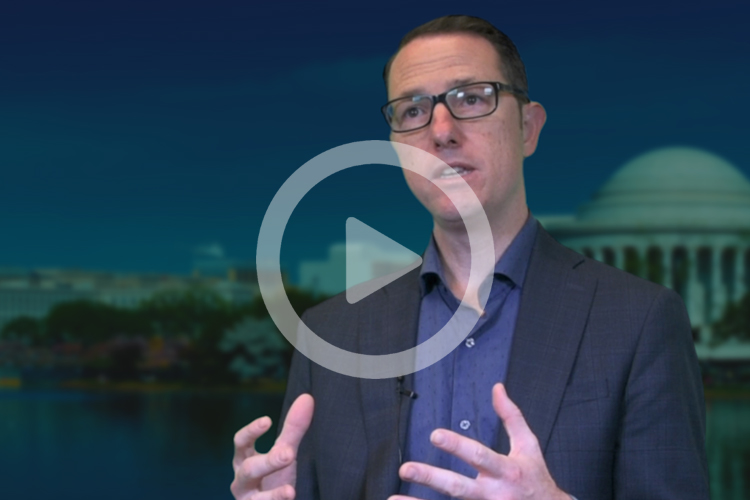
Every gastroenterologist deals with difficult GI consultations. Often these are patients who have functional abdominal pain or functional bowel disorders.
“What becomes so frustrating is these are symptoms for which we can’t run a test, can’t take a picture of it, can’t get an X-ray for it,” said Brennan Spiegel, MD, MSHS, AGAF, professor of medicine and public health at the University of California, Los Angeles, and director of health services research at Cedars-Sinai Hospital. “When you are left with no objective data, working with patients to improve their well-being while retaining the authority that we know what we are talking about can be a challenge.”
Dr. Spiegel and Douglas A. Drossman, MD, AGAF, co-director emeritus of the University of North Carolina Center for Functional GI and Motility Disorders, Chapel Hill, and president of the Rome Foundation, will moderate Sunday afternoon’s AGA Clinical Symposium How to Manage Difficult Gastroenterology Consultations.
The symposium’s presenters will examine techniques to control pain in patients with functional GI disorders, manage patients with complex inflammatory bowel disease and incorporate psychological care in the clinic to manage the brain-gut axis.

“When you look at functional GI patients, there’s always the temptation and the risk of doing more tests to find a more specific disease,” Dr. Drossman said. “Not every GI is skilled in more appropriate techniques, such as using central neuromodulators or referring for behavioral treatment, or even personally building an effective provider-patient relationship. A good relationship is a very low-cost and highly efficient way to help patients with conditions like chronic pain.”
Indeed, psychological care is a new frontier for many GIs, Dr. Drossman said. The Rome Foundation has created a psycho-gastroenterology group of psychologists who work specifically with GI patients.
Building a useful provider-patient relationship can also be a new frontier.
“Patients with chronic pain are often looking for a quick fix or a new diagnosis or a different workup,” Dr. Spiegel said. “The reality is that you have to set realistic expectations and explain the pathophysiology of pain. And you have to look at treatments that could include pharmacotherapy and psychological treatment.”
One element in building a good relationship is simply listening to the patient, Dr. Spiegel said. Studies have found that when patients try to explain their condition, the typical clinician interrupts within 10 to 20 seconds.
“There’s a real therapeutic benefit from listening,” Dr. Spiegel said. “Doctors don’t always appreciate how powerful it can be to allow someone the opportunity to describe their illness experience in their own words while being empathetic. It may not lead to a diagnosis but it can make people feel better just to know that somebody is listening to them.”
Please refer to the DDW Mobile App or the Program section in Sunday’s issue for the time and location of this and other DDW® events.




7 Responses
My tactics with these patients is listening and addressing their concerns about the problem and sympathises with them about their plight and then to explain that this problem is controllable by medications however it’s not curable so I set a sealing to their expectation up front and also I offer them a review appointment as many of our colleagues are not interested in the subject and once they find out the diagnosis they usually dishage the patient from the clinic of course there will be a few patients who you will be struggling to deal with those who you exhausted all medications and has not shifted their symptoms and refusing to have any psychological help typically these patients will be accompanied by one or two family members who will put more pressure on you to do something as the disease affected all family and this is the challenge?
Me parece que escuchar al paciente la forma como describe sus síntomas sus expresiones son importantes en la patología GI, para mi fue una experiencia con el Dr Pontes en Brasil recibir una vez por semana psicosomática
Timely recognition of E.Q requirements. Many of us are floundering in this ocean of dysfunctionality and expert signposts much appreciated
Can you please send the transcript of the case presentations by email. Thank you
Hi
We loved your Blog on “Expert panel will share tips and tricks for managing difficult gastroenterology consultations”. It was very informative.
If you are interested in learning more about Gastroenterology procedures and services check out our website http://www.midstategastroct.com/ for further information.
Thank you,
Hi,
Thanks for sharing this information.There are some conferences happening in which medical specialty would be Oncology and here is one of those conferences the conference details are given below.
Surgicals and Sub Specialty Oncology and Oncology trainees are the Target Audience of the conference & it has been approved for a maximum of 20.0 AMA PRA Category 1 Credits™
Hi,
Thanks for sharing this information. There are some conferences happening in which medical specialty would be Gastroenterology and here is one of those conferences the conference details are given below.
Cedars-Sinai Medical Center Organizing 2020 International Endoscopy Symposium from Jan 30 – Feb 02, 2020 at Cedars Sinai Medical Center Harvey Morse Conference Center South Tower, Los Angeles, California, USA.
For more information please follow the below link:
https://www.emedevents.com/c/medical-conferences-2020/2020-cedars-sinai-international-endoscopy-symposium